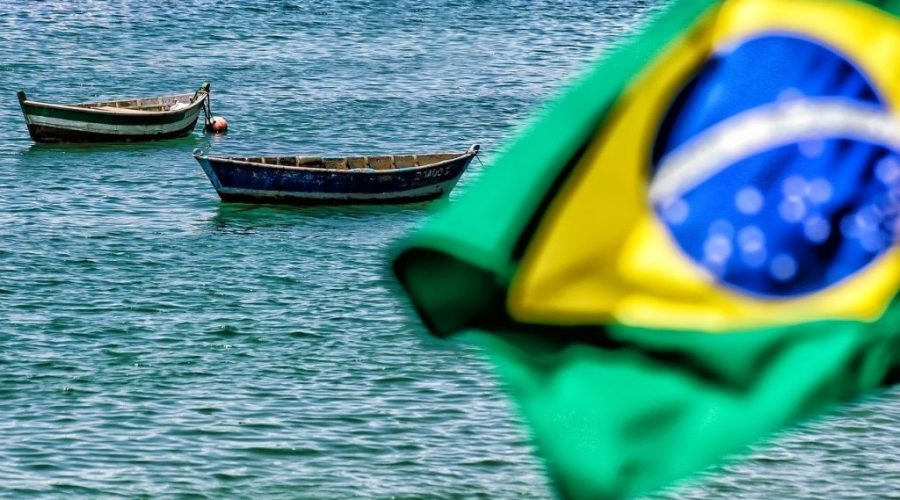Brazil to require E-Visa for US, Canada, Australia
Brazil has announced the reinstatement of e-visa requirements for nationals from the United States, Canada, and Australia starting January 10, 2024. Later announced its postponement to April 10, 2024.
This decision, formalized by Decree No. 11.875 and published in an extra edition of the Official Gazette on January 4, 2024, modifies the previous Decree No. 11.692 from September 2023.
The postponement aims to complete the implementation process of the system and to avoid starting it during the peak travel season at the end and beginning of the year. The intention is to ensure a smooth introduction of the measure without negatively impacting the tourism sector.
The policy of reciprocity, a longstanding mechanism in Brazilian diplomacy, was explained by the Minister of Foreign Affairs, Mauro Vieira. He noted that the previous government had suspended the visa requirement for Americans, Canadians, Australians, and Japanese without reciprocity, as Brazilians still needed visas to travel to these countries. Upon instructions from President Lula, the government reinstated the visa requirement and initiated negotiations with these countries. While Japan agreed and negotiated, the others cited legislative barriers. The Brazilian government remains open to negotiating visa exemption based on reciprocity, meaning if a country allows Brazilians to travel without a physical visa, Brazil will offer the same advantage.
This update in the visa policy reflects Brazil’s commitment to a balanced approach in international travel and diplomacy, emphasizing the importance of reciprocity in its foreign relations.
The new e-visa, priced at $80.90, is a digital document obtainable through the official website brazil.vfsevisa.com. Designed to streamline the application process, this electronic visa will be valid for a decade for U.S. citizens and five years for Canadian and Australian visitors. It allows for multiple entries, providing flexibility and ease for frequent travelers to Brazil.
Brazilian authorities have outlined a processing time of up to five business days for the e-visa. However, they advise applicants to initiate the process at least two months prior to their travel date. This recommendation is to ensure sufficient time for application completion, any necessary corrections, and to accommodate any unforeseen delays.
The application process for the e-visa is straightforward and entirely online, eliminating the need for in-person embassy or consulate visits. Applicants, including minors whose applications must be completed by a parent, are required to provide personal and passport details on the website. Following the submission and payment of the fee, applicants will receive an email notification regarding the status of their application. Once approved, a PDF of the e-visa is emailed, which travelers should print and carry during their journey.
Brazilian officials emphasize the importance of having two printed copies of the e-visa and recommend saving a screenshot of it on a mobile device for easy access. This digital approach aligns with global trends in travel documentation, offering a more convenient and environmentally friendly alternative to traditional paper visas.
The decision to reinstate the e-visa requirement was initially set for October 1, 2023, but was postponed by the Brazilian government. The rationale behind this policy change is attributed to the lack of visa reciprocity from the United States, Canada, and Australia. Brazilian nationals currently need to apply and pay for visas to enter these countries, prompting Brazil to implement a similar requirement for travelers from these nations.
Since 2019, citizens from the US, Canada, Australia, and Japan have enjoyed visa-free entry into Brazil for stays up to 90 days, extendable to 180 days, for business or pleasure. This policy was part of Brazil’s efforts to boost tourism, especially during events like the 2016 Rio de Janeiro Olympic Games. Prior to the visa waiver, an online tourist visa application was necessary, costing $40 plus a service fee.
The Brazilian government has expressed its intention to continue negotiations for visa exemption agreements with the US, Canada, and Australia, based on reciprocity and equality. The ultimate goal is to potentially waive the new visa requirement if these countries reciprocate by removing their visa requirements for Brazilian citizens.
In contrast, Brazil and Japan have successfully reached a mutual visa exemption agreement, allowing Japanese tourists visa-free travel to Brazil and vice versa. This agreement exemplifies the potential for future diplomatic negotiations to facilitate easier travel between nations.
As Brazil prepares for this policy shift in 2024, travelers from the affected countries must adapt to the new e-visa requirements. While this change may initially seem like a step back from the ease of visa-free travel, it represents a move towards balanced international travel policies and the evolving nature of global tourism and diplomacy.




